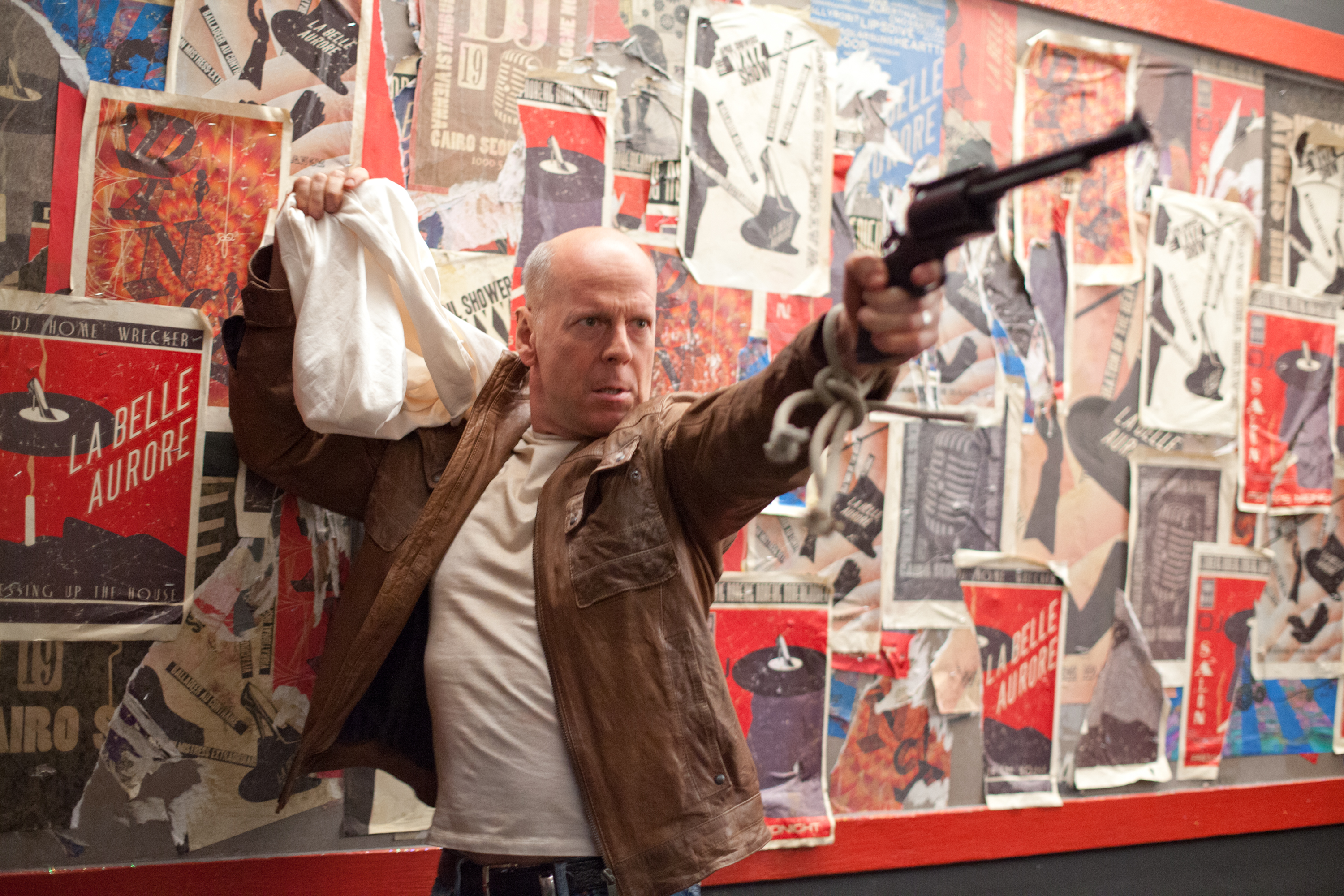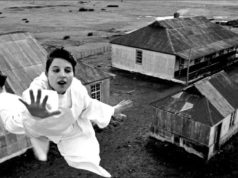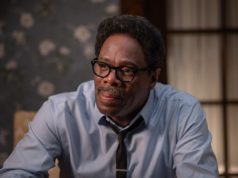I didn’t have space to get into this in my review of Looper, but I continue to be amazed by the career of Bruce Willis. In fact, I’d say this product of Penns Grove, N.J. (though he was born in Germany) is one of the most underrated actors of our time, and even if he doesn’t go down as one of our time’s greatest actors, he’ll still go down as a highly significant star. “Underrated?” you say. He has been one of Hollywood’s biggest stars since the 1980s His films have grossed $2.86 billion total and counting. Yes, that’s true. And yet he still hasn’t quite gotten his due, so I’m trying to size up what he’s done so far.
Most of us think of Willis as an action star. However, let’s not forget that he was an unlikely choice for the lead role in Die Hard, the film that started him on that path. He was largely known as a comedic actor from his work on TV’s Moonlighting. That background was crucial, allowing him to bring something new to a Hollywood where action movies were dominated by Stallone, Schwarzenegger, and their ilk. Willis brought a snarky, streetwise sense of humor and allowed us to see self-doubt lurking under his brash façade. His interpretation of action roles served him through a run of financial success in the 1990s that included not just the sequels to Die Hard but also such hits as The Last Boy Scout, The Fifth Element, Armageddon, and The Siege. Together with the anguished, tortured Mel Gibson, Willis created action heroes who weren’t unstoppable killing machines, but rather thinking, feeling human beings recognizable to the rest of us. The older guard may not like this current era of action heroes haunted with Hamlet-like self-consciousness, but Willis and Gibson helped bring action cinema into the modern age. Had Willis done nothing else, that would be a significant achievement.
Yet he had trouble winning critical respect back then, and not just because of critics’ tendencies to think of action-thrillers as a lower form of drama. The Last Boy Scout and Armageddon were and are eyeball-meltingly bad, and yet they made piles of cash. The same went for the actively annoying comedy The Whole Nine Yards. Respect doesn’t tend to accrue to stars whose movies are profitable and yet reviled; just ask Adam Sandler. Willis also indulged in some jackassy offscreen behavior in his early days and had a brief career as a blues musician that offended lots of real blues fans. It all helped ensure that he wasn’t taken seriously.
Those who were paying closer attention, though, knew that a scant two years after Die Hard he took a supporting role in Alan Rudolph’s Mortal Thoughts, opposite his wife at the time, Demi Moore. In this low-budget thriller set among working-class New Jerseyites, Willis plays a thoroughly detestable piece of white trash, a useless, unemployed drunk who hits on his wife’s best friend (played by Moore) in disgusting fashion. This character could turn into a cardboard villain, but Willis brings a certain dissolute charm to the role, so you understand why this character’s far more capable wife (played by Glenne Headly) would stick with him. Willis never would have been able to play such a character in a mainstream Hollywood movie, but in this independent film, he showed that he could.
That early role established a pattern that has held up through Willis’ career. He has sought out collaborations with innovative, up-and-coming filmmakers who could give him roles that were less than heroic. The directors he has worked with include Quentin Tarantino, Terry Gilliam, M. Night Shyamalan, Robert Rodriguez, and most recently Wes Anderson. Willis caught them all either at the height of their powers or on the way up. In some instances, his box-office drawing power helped these filmmakers obtain financial backing for their projects in the first place. His taste in these smaller movies hasn’t been impeccable (don’t see him in Rudolph’s tone-deaf Breakfast of Champions or Kevin Smith’s unwatchable Cop Out), but he has picked winners often enough. Even in these films, he hasn’t demanded showpiece scenes that will get him an Oscar nomination. Instead, he does his usual subtle, professional work. In supporting roles, he’s content to blend in with the ensemble, seemingly happy just to be involved with the project. Check out his understated reaction in Pulp Fiction when Butch makes his getaway, only to find Marcellus Wallace standing in front of his car. The look on Willis’ face is, “Oh crap, this is going to put a crimp in my day.”
He doesn’t take roles that scream “Oscar bait”: You won’t see him playing drag queens or Shakespearean kings. This curtails his range, and it’s probably the reason why he has never garnered so much as an Oscar nomination even as he has moved away somewhat from action films. Yet it’s also the sign of an actor who has a keen grasp on his own limitations. That sounds patronizing, but Willis typically does excellent work within his limits. He seldom lets his soft-spokenness and tough exterior become boring, and he seldom lets his confidence and sense of humor curdle into smugness. His performance in The Sixth Sense probably merited an Oscar nod, though the Best Actor field was pretty crowded that year. He also gave a terrific performance in Disney’s The Kid as a public relations specialist who magically confronts his own pudgy, bullied 8-year-old self. Willis brings nasty glee to the scenes in which his P.R. guy insults clients, knowing that the clients are desperate enough to let him get away with it. Yet he’s also convincing in the later scenes, when he confronts his childhood demons. Pretty nice for an otherwise rote and inoffensive family movie.
Still, it’s his work in Pulp Fiction, Moonrise Kingdom, and now Looper that’s the key to this stage of his career. This is how we wish movie stars would use their fame — splitting time between crowd-pleasing projects and helping out talented filmmakers who are willing to experiment. George Clooney and Leonardo DiCaprio get all sorts of credit for this, but I find it strange that Willis doesn’t. Whatever the reason for that, this tendency has kept Willis a vital and relevant actor at age 57, while his co-stars in The Expendables have lapsed into dinosaur-hood. He won’t blow his own horn about this, but his career as a movie star has been as remarkable as anybody’s.













Great article and a lot of truth to it. Stallone, Segal et al…seem so one dimensional while Bruce always brought depth and a wry sense of humor (as does Mel Gibson) to all his roles. I hope we get to see a whole lot more of him….